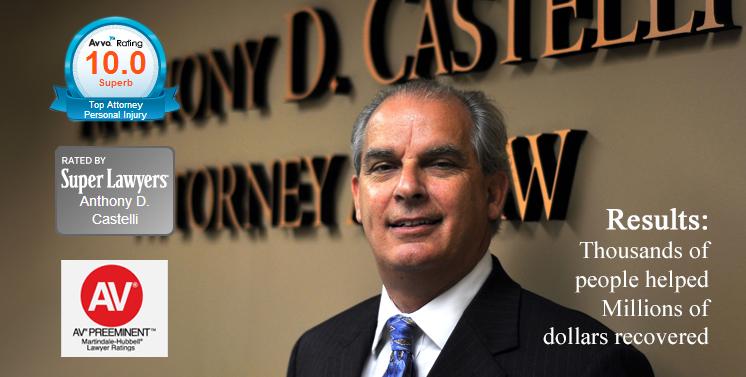If the employer contests the claim, a denial may be issued even without a hearing. Therefore, it is important for you to immediately seek the advice of an attorney if you get anything from worker's compensation.
Mr. Castelli handles his worker's compensation claims on a contingency basis, which means that a legal fee is paid only if he successfully obtains a recovery for you, although there may be expenses.
Can I Sue My Employer Instead of Filing a Workers' Compensation Claim?
The answer to this question is, in most cases, no. Workers' compensation systems were established as a trade-off in which employees gave up the right to sue employers in court for their injuries, in exchange for the right to receive workers' compensation benefits regardless of who was at fault for their injuries. Most employers are required by law to provide workers' compensation insurance for the benefit of their employees. In exchange for providing that insurance, employers are protected from defending personal injury claims brought by employees in civil actions.
Nonetheless, workers' compensation does not prohibit an employee from bringing a claim against his or her employer for an intentional tort, or any injury sustained due to intentional behavior on the part of an employer seeking to harm an employee. Also, an employee may sue his or her employer for non-physical injuries such as emotional distress or discrimination.
Additionally, in most states, employees are free to pursue third parties (entities other than the employer) whom they feel are responsible for their work-related injuries. For example, an employee who believes his or her injury was caused by defective equipment may consider filing a lawsuit against the manufacturer of the equipment. In many states, an employee who is successful in recovering damages from a third party may either have to pay a portion of the recovery back to the employer to repay the workers' compensation benefits that were received, or the employer and its insurer may be allowed to become a party to the lawsuit and seek to recover the value of the benefits paid on behalf of the employee.
Can I File a Lawsuit if My Employer Disputes My Workers' Compensation Claim?
Usually, workers' compensation claims are pursued through the administrative process and not through the court system. Only once the administrative process has been exhausted, and the parties have taken every step they can to settle a claim, including attending an administrative hearing, may they appeal the compensation award to a workers' compensation appeal board or court.
In many states, if a party still takes issue with the determination of the workers' compensation appeal board or court, redress may then be sought in the civil court system. This process is specifically controlled by each state and, if you haven't already, you should retain an attorney familiar with the workers' compensation system in your state to handle your claim.
Conclusion
If you are unsure whether you have a workers' compensation claim or a civil claim against your employer, you should consult with an experienced attorney. You may also wish to contact the workers' compensation commissioner's office in your state.


